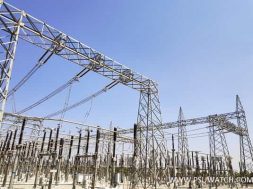
State-Run CESL to Supply EVs to Goa, Kerala and Andhra
Under the agreement to be signed on Saturday, the vehicles would be supplied by the Energy Efficiency Services Ltd (EESL) unit, the company said
A file photo of an electric vehicle charging station. The pact includes setting up charging infrastructure.
State-run Convergence Energy Services Ltd (CESL) will supply 30,000 electric two-wheelers to Andhra Pradesh, Kerala and Goa, in a boost to India’s ambitious plans for green mobility.
Under the agreement to be signed on Saturday, the vehicles would be supplied by the Energy Efficiency Services Ltd (EESL) unit, CESL chief executive officer and managing director Mahua Acharya said in an interview.
The pact includes setting up charging infrastructure in the three states.
CESL will also separately sign a pact with the Pune Municipal Corporation on Saturday for leasing out and operating three-wheeled electric vehicles (EVs) for the municipality’s garbage collection fleet.
EESL, a joint venture of NTPC Ltd, Rural Electrification Corp. Ltd, Power Finance Corp. Ltd and Power Grid Corp. of India Ltd, is currently running the world’s largest domestic lighting programme.
Under the new scheme, CESL aims to have 200,000 two-wheeled EVs and 300,000 three-wheeled EVs across India. It plans to halve the cost of ownership of these vehicles through incentives offered under phase 2 of the Union government’s Faster Adoption and Manufacturing of Hybrid and Electric Vehicles (Fame) scheme, state government subsidies, support from EV makers and carbon credits that will be earned under the United Nations’ Clean Development Mechanism (CDM). Electric mobility has already been registered for earning carbon credits.
Acharya said the aim is to make these vehicles affordable through efficient financing solutions while highlighting their low cost of ownership compared to those that run on fossil fuels.
While the EV scheme will be open to state government employees in Andhra Pradesh and Kerala; in Goa, it can be availed by anyone.
The plan involves nearly halving the price of these two-wheeled EVs from the current about ₹1.4 lakh to about ₹75,000. Prices of the two-wheeler models could, however, vary due to subsidies and taxes in each state.
“This model is different from the earlier models adapted by EESL as the key does not lie only in procurement and demand aggregation. All stakeholders will have skin in the game.
In case of Andhra Pradesh, a state government employee will articulate her preference online for the two-wheeler EV models from among the many manufacturers that will be empaneled. It will be the state government that will be consolidating the demand, but CESL will offer as many vehicles as possible,” Acharya said.
In 2017, EESL planned to buy 10,000 EVs from Tata Motors Ltd and Mahindra and Mahindra Ltd but couldn’t execute it due to a lack of demand, charging stations and range related issues of EVs.
Around 22 million petrol two-wheelers are sold every year in India. Switching a portion of these will help the country trim its crude import bill that totalled $101.4 billion in 2019-20.
As part of its push towards EVs and to turn India into a global hub for the manufacturing of EVs and their components, the government has announced a ₹18,100 crore production linked incentive (PLI) scheme to make lithium-ion cells.
Acharya said: “CESL will also be partnering with Bharat Electronics Ltd, TVS Motor Co. Ltd, JBM Renewables Pvt. Ltd, and Fortum India for jointly setting up public charging infrastructure and building up the electric mobility ecosystem in India.”
Bharat Electronics, TVS Motor, JBM Renewables and Fortum India could not be immediately reached for comment.
Meanwhile, CESL will also be signing initial pacts on Saturday with Maharashtra State Power Generation Co. Ltd and Meghalaya Power Distribution Corp. Ltd for setting up 100 megawatts (MW) and 60MW of decentralized solar capacity, respectively.
















